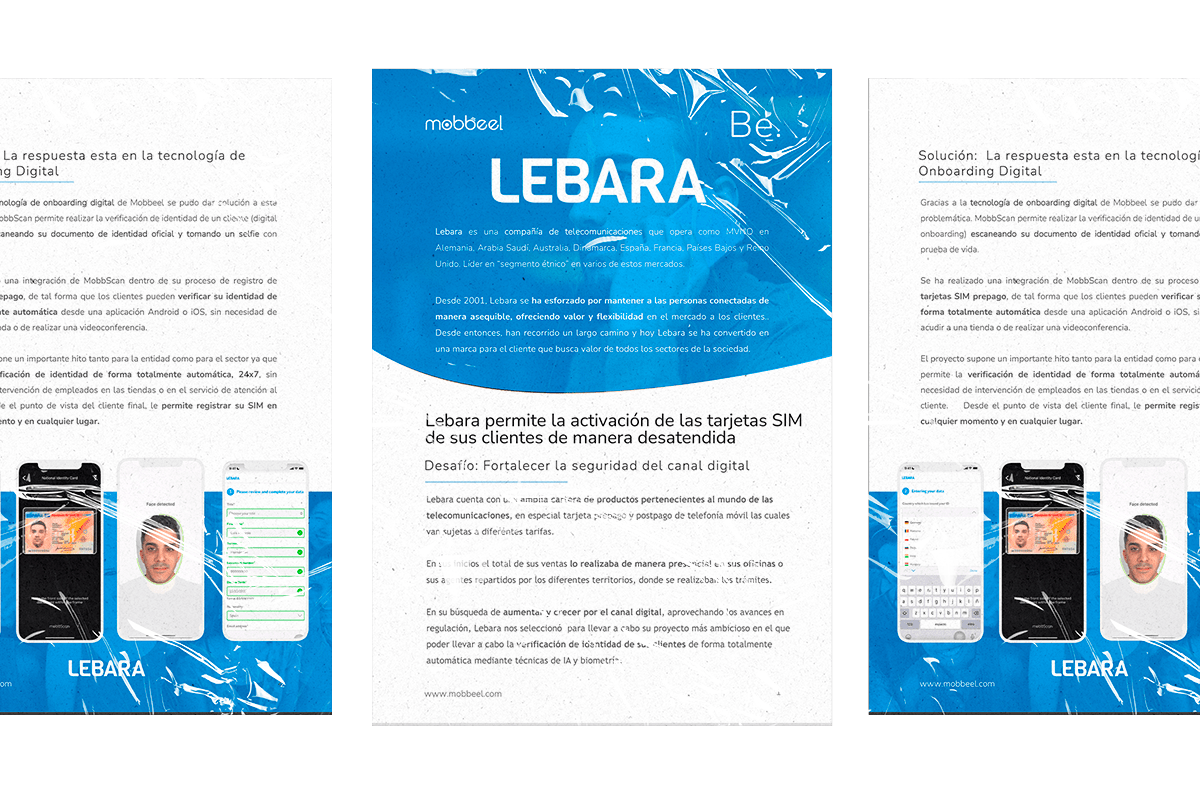The utilities sector, essential to the global economy, is at the forefront of an unprecedented transformation. Traditionally focused on providing basic services such as electricity, water, and gas, this industry is now facing a paradigm shift driven by technological innovation and sustainability demands from businesses and citizens alike.
As a result, utilities are not only seeking to improve their efficiency and customer satisfaction, but also to adapt to a constantly evolving market where digital security is of paramount importance.
A cornerstone in maintaining this digital security is bolstering customer identity verification processes. With the rise of digital transactions and the need to protect user information, utilities require robust solutions that ensure security and trust at every customer touchpoint.
What is utilities sector?
Utilities are public service companies that operate key infrastructure to provide vital services to people. These essential services, closely linked to the energy and telecommunications sectors, primarily include:
- Energy (gas, electricity, etc.): The emergence of combined electricity and gas tariffs has led these types of companies to almost exclusively appropriate the term “utilities,” as they dominate a large portion of the market. Nevertheless, it’s important to consider other significant sectors within utilities, such as those related to transportation and telecommunications.
- Water and sanitation services: The provision of clean water in our towns and cities involves complex infrastructure and processes. Public service companies extract water from natural sources like rivers, aquifers, or the sea through desalination plants, treat it to make it potable, and distribute it through a network of pipes to end consumers. In our homes and consumption centers (factories), we use water, and wastewater then goes to sanitation and purification services.
- Telecommunications: These companies have evolved from being considered public services to offering a wide range of products and services, including tariffs with or without internet, cable television, and other associated products.
- Transport infrastructure such as highways, public transportation, and maritime channels.

The ownership of public service companies varies between private, state-owned, or a combination of both, as the market was liberalized years ago, giving rise to a wide variety of business models, company types, and competitors.
Recognized for their importance to social well-being and economic support, these entities are subject to strict regulation and oversight to ensure their proper functioning, adapting to models ranging from local management to broader state control structures.
The impact of technology on the evolution of utilities
Over the past few decades, we’ve witnessed how digitization has revolutionized the utilities sector.
The adoption of advanced technologies such as artificial intelligence (AI), the Internet of Things (IoT), Big Data, and real-time data management has enabled these companies to enhance their operational efficiency, reduce costs, and optimize resource distribution. These innovations have not only improved the quality of services offered but have also opened up new market opportunities and facilitated greater customization of customer service.
Moreover, the use of data-driven solutions, such as predictive analytics and machine learning, has significantly enhanced operational efficiency, allowing utilities to anticipate and mitigate issues before they arise.
Simultaneously, sustainability has become a fundamental pillar, primarily driven by an increasingly environmentally conscious citizenry. As a result, these technologies have enabled the development of smart grids capable of efficiently managing energy supply and demand, integrating renewable sources, and improving sustainability. This reduces carbon footprint and addresses the growing demand for green energy.
This is not only a response to environmental concerns but also a reflection of a shift in consumer expectations and government regulations.
Another crucial aspect in this evolution is the need for efficient and secure identity verification. With the rise of digital services and online platforms, customer authentication has become more complex.
Public service companies face the challenge of protecting user data and ensuring secure transactions to prevent fraud. This is where our identity verification technology comes into play, providing secure and efficient solutions for authenticating customer identities in this ever-changing digital environment.
Utilities on the stock market
Sustainability and renewable energies: the crucial role of public service companies
Commitment to sustainability and the integration of renewable energies are now crucial aspects of utility companies’ strategies. This shift responds not only to stricter environmental regulations but also to growing social awareness of environmental impact and the need for action against climate change.
To lead the way in the energy transition, utilities are investing in renewable energies such as solar, wind, and hydroelectric power. These investments not only reduce dependence on fossil fuels but also promote a more sustainable and resilient business model. Integrating these energy sources into electrical grids requires innovative solutions in terms of energy storage and demand management, where technology plays a key role.
Another significant advancement is the implementation of smart grids that use telecommunications technologies for more efficient management of energy resources. These grids enable better integration of renewable energy sources, optimization of energy demand and supply, and more effective management of infrastructures.
In this context, identity verification and data security become paramount. As utilities adopt data-driven business models and digital platforms, ensuring the authenticity and security of transactions and customer information becomes a priority.
Digitizing the signing process and eliminating paper offers many advantages to the company, as it represents significant cost savings in paper management and storage, to end-users, as they are offered a quick, simple, and intuitive process, and to the environment, by promoting the conservation of our forests.
Identity fraud in utilities and public service companies
The Future of Utilities: towards a more connected and secure sector
Looking ahead, utilities are moving towards an increasingly connected and intelligent landscape. Emerging trends include the adoption of technologies such as 5G, advanced AI, and big data analytics for more efficient and personalized resource management. Additionally, the integration of renewable energy solutions and energy storage will remain a key focus, driving the transition towards a greener and more sustainable energy infrastructure.
Secure identity verification and data protection will take on an even more crucial role. As utilities become more interactive and customer-centric, ensuring user identity and safeguarding their personal information will become an essential and differentiating factor, given the high competition among different companies.
Therefore, the future of utilities is shaping up to be an intersection of technological innovation, sustainability, and cybersecurity, where digital identity verification will play a fundamental role in building a secure, efficient, and environmentally friendly energy ecosystem.
Conclusion: integrating identity verification in the transformation of utilities
Mobbeel, as a company specializing in identity verification solutions, aims to play a crucial role in this changing landscape. To achieve this, we provide secure and efficient tools that enable utilities to protect customer information and ensure secure transactions, which is essential in an increasingly digitized and customer-centric sector.
Looking to the future, we will continue to lead and support this transformation, ensuring that utilities can successfully navigate this new digital and sustainable environment.
Contact us if you want to learn more about how can we help utilities

I’m a Software Engineer with a passion for Marketing, Communication, and helping companies expand internationally—areas I’m currently focused on as CMO at Mobbeel. I’m a mix of many things, some good, some not so much… perfectly imperfect.

SUCCESS STORY
SIM card activation through identity verification
Law advancements have led Lebara to implement fully automatic identity verification for new SIM card activation, thanks to Mobbeel’s onboarding technology.





